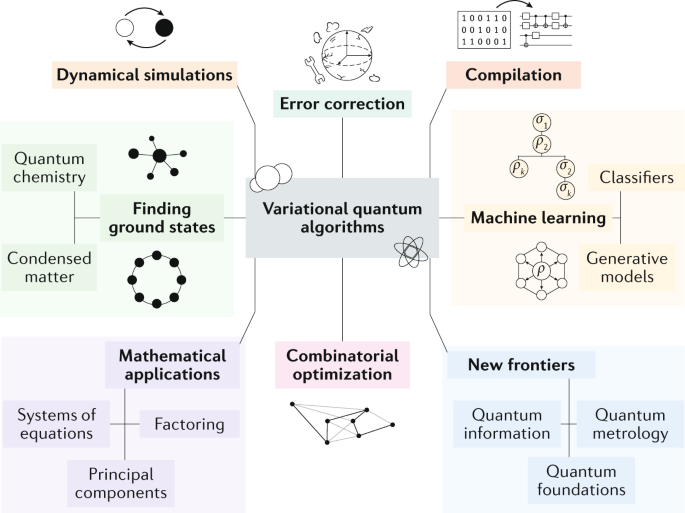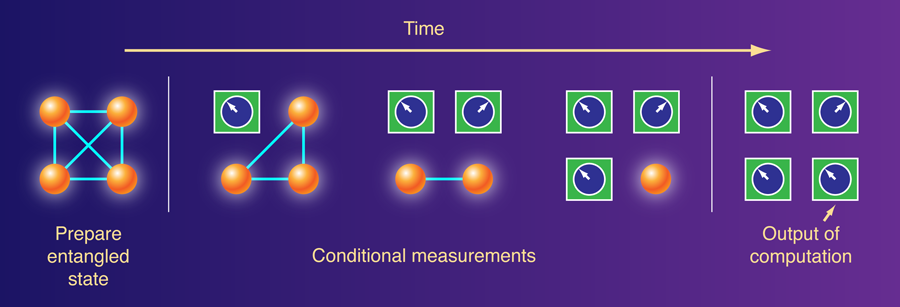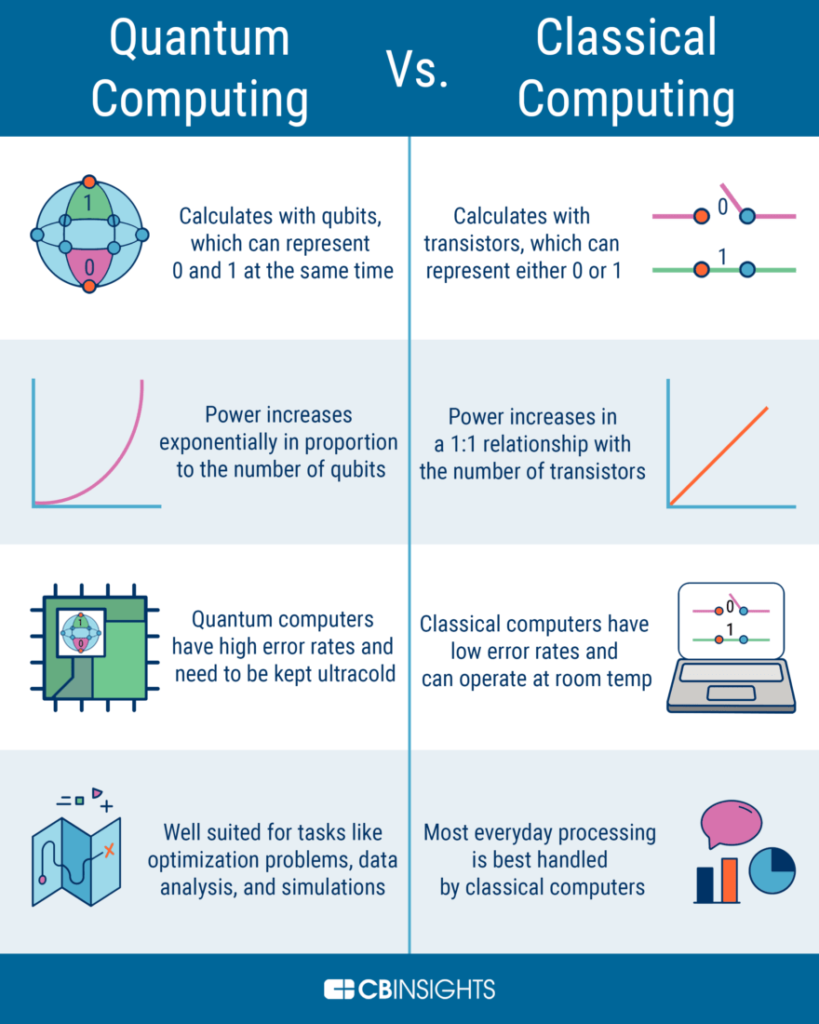Quantum computing is the future of technology, and with it comes the concept of quantum algorithms. But what exactly are quantum algorithms, and why are they gaining so much attention in the tech world?
In simple terms, quantum algorithms are a set of instructions that are designed to be executed by a quantum computer. Unlike classical algorithms, which are based on binary digits, quantum algorithms use quantum bits, or qubits, to perform complex computations. These algorithms are designed to take advantage of the unique properties of quantum mechanics, such as superposition and entanglement, to solve problems that are beyond the capabilities of classical computers. In this article, we will delve deeper into the world of quantum algorithms, exploring their potential applications and the challenges that researchers face in developing them.
What are Quantum Algorithms?
Quantum algorithms are algorithms that take advantage of quantum computing to solve problems that classical computers cannot solve. These algorithms are typically used in fields such as mathematics, physics, cryptography, and machine learning. They can be used to solve problems that are too complex for classical computers, such as factorization and quantum simulation. In addition, quantum algorithms can be used to speed up existing algorithms, such as the Monte Carlo algorithm.
Quantum Computing
Quantum computing is a type of computing that uses quantum mechanics to solve problems. It is based on the idea of using quantum bits (qubits) to represent and manipulate data. Qubits are similar to classical bits, but they are able to exist in multiple states at the same time. This allows quantum computers to process data faster and more efficiently than classical computers.
Advantages of Quantum Algorithms
Quantum algorithms have several advantages over classical algorithms. First, they are able to solve problems that are too complex for classical computers. For example, a quantum algorithm can be used to factor large numbers, which is impossible for a classical computer. Quantum algorithms are also able to process data more quickly and efficiently than classical algorithms. For example, a quantum algorithm can be used to simulate a quantum system, which would take a classical computer much longer. Finally, quantum algorithms can be used to speed up existing algorithms, such as the Monte Carlo algorithm.
Types of Quantum Algorithms
There are several types of quantum algorithms that can be used to solve different types of problems. Some of the most common types of quantum algorithms are: Shor’s Algorithm, Grover’s Algorithm, Deutsch-Jozsa Algorithm, and the Quantum Fourier Transform. Each of these algorithms has its own unique advantages and disadvantages.
Implementing Quantum Algorithms
Implementing quantum algorithms is a complex process. It requires knowledge of quantum computing, as well as an understanding of the specific algorithm being implemented. In addition, implementing a quantum algorithm typically requires access to a quantum computer, which is not readily available to most people.
Conclusion
Quantum algorithms are algorithms that take advantage of quantum computing to solve problems that classical computers cannot solve. These algorithms are typically used in fields such as mathematics, physics, cryptography, and machine learning. They can be used to solve problems that are too complex for classical computers, such as factorization and quantum simulation. In addition, quantum algorithms can be used to speed up existing algorithms, such as the Monte Carlo algorithm. Implementing quantum algorithms is a complex process, and requires knowledge of quantum computing and access to a quantum computer.
Frequently Asked Questions about Quantum Algorithms
Quantum algorithms are algorithms designed to take advantage of the properties of quantum computing, such as superposition and entanglement, to solve problems more quickly than classical algorithms. Although quantum algorithms are still in the early stages of development, they are expected to revolutionize the way we solve complex problems in the future.
What is a quantum algorithm?
A quantum algorithm is an algorithm designed to take advantage of the properties of quantum computing. In other words, it is a way of using quantum computing to solve a problem more quickly than with classical algorithms. Quantum algorithms use concepts such as superposition, entanglement, and quantum interference to find solutions to problems that would take much longer to solve using classical computing.
How do quantum algorithms work?
Quantum algorithms use concepts such as superposition, entanglement, and quantum interference to solve problems more quickly than classical algorithms. Superposition is the ability of a quantum system to exist in multiple states at once, while entanglement is a phenomenon in which two or more particles become interconnected such that they share a single quantum state. Quantum interference is the ability of a quantum system to interfere with itself and produce outcomes that cannot be predicted using classical computing. By using these concepts, quantum algorithms can solve problems faster and more efficiently than traditional algorithms.
What are the advantages of quantum algorithms?
The main advantage of quantum algorithms is that they can solve complex problems much faster than traditional algorithms. For example, a quantum algorithm can solve a problem that would take a classical computer hundreds of years to solve, in just a few minutes. Additionally, quantum algorithms are more efficient than classical algorithms, meaning that they can solve problems using fewer resources. Finally, quantum algorithms can be used to solve problems that are impossible to solve using classical algorithms.
What are the applications of quantum algorithms?
Quantum algorithms have a wide range of applications. They can be used to solve complex optimization problems, such as traveling salesman problems, as well as solve problems in cryptography, chemistry, artificial intelligence, and machine learning. Additionally, quantum algorithms can be used to simulate physical systems, such as molecules, which can be used to design new materials and drugs.
Are quantum algorithms secure?
Yes, quantum algorithms are secure. Since quantum algorithms use principles such as superposition, entanglement, and quantum interference, they are difficult to break. Additionally, since quantum algorithms use quantum computers, they are less vulnerable to hacking than traditional algorithms. Finally, quantum algorithms are immune to the type of attacks that can be used to break traditional algorithms, such as brute force attacks.

Quantum Algorithms – Ronald de Wolf
In conclusion, quantum algorithms are a groundbreaking development in the field of computer science. They represent a major step forward in terms of processing power and hold the potential to revolutionize the way we approach complex computational problems. As quantum computers become more advanced and widely available, we can expect to see an increasing number of applications for these algorithms across a range of industries.
Despite their great promise, quantum algorithms are still in the early stages of development, and much research is needed to fully understand their capabilities and limitations. However, with the rapid pace of technological advancement in this field, it is clear that quantum algorithms will play an increasingly important role in shaping the future of computing. As we continue to explore the possibilities of quantum computing, it is exciting to think about the incredible potential these algorithms hold for solving some of the world’s most challenging problems.




